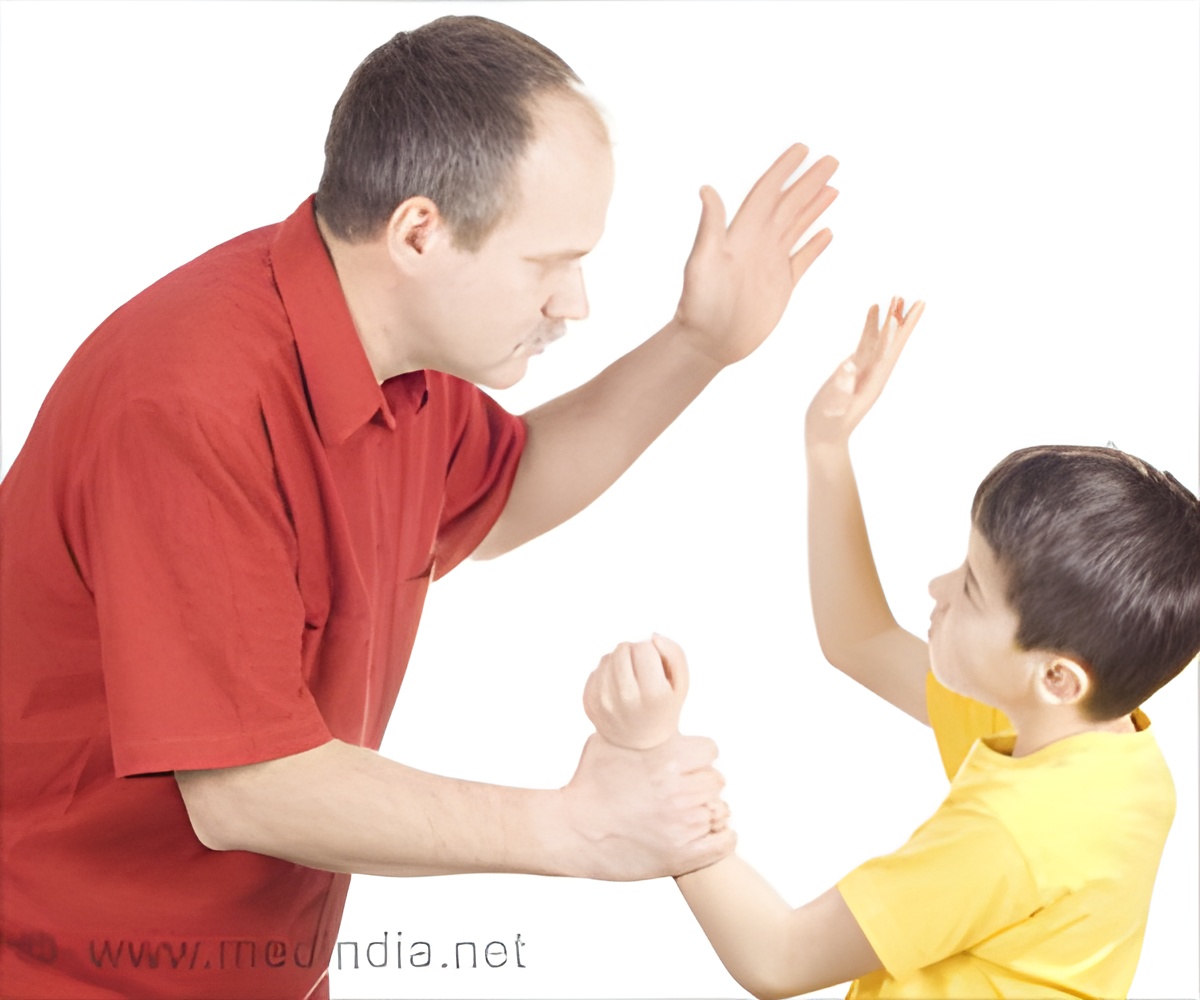Spanking children to correct their behavior affects them by leading to aggressive behavior and cognitive disabilities.

- Spanking children for misbehavior affects them negatively
- Children were found to be affected with mental health problems, difficulties in cognition and aggressive behavior.
- Study performed by researchers from University of Michigan and University of Texas
The study involved a meta analysis of research papers on spanking that was conducted over a period of 50 years and was published in the Journal of Family Psychology. According to this study, spanking, a form of physical exertion on the child, was carried out as a parenting method to discipline the child or for compliance from the child. This, however, leads to a series of effects that affected the child negatively.
Grogan-Kaylor, one of the co-authors of the study said "The upshot of the study is that spanking increases the likelihood of a wide variety of undesired outcomes for children. Spanking thus does the opposite of what parents usually want it to do,"
Spanking was defined by the authors as the method of using the palm of the hand to hit the extremities like hands and legs or hitting the bottom. The negative effects noticed were:
- Mental health problems
- Spanking their children when they become parents
- Aggressive behavior
- Depression
- A change in cognitive ability
The recent study by Grogan - Kaylor studied the effect of spanking and physical abuse on children and found that they elicited the same response. This alarming fact should be an indication to parents to stop spanking their children as it is being equated to physical abuse.
Why do Parents Spank their Child?:
- Parents believe that they were spanked by their parents and that they turned out fine
- The aggression incurred due to spanking in childhood is inturn taken on their children
- Some parents believe that it makes a ‘man’ out of their son
- Irresponsible behavior, when punished by spanking, will defer the child from ever doing it again, for fear of being spanked.
- Parents watch other parents do it and feel that they should too
- Maternal depression that leads to aggression exerted on the child
- Alcoholics who are abusive at home.
- Since parents are bigger and in a position of authority their aggressive behavior is accepted. This leads to such children exerting aggressive behavior on children younger or smaller than them. This could lead to bullying at school.
- Alternatively, children may grow up to be withdrawn or fearful, with poor self-confidence, especially if they were spanked in front of other people.
- Children who are spanked by their parents often develop poor cognitive abilities.
- The child may never be able to open up to the parent about problems faced in life, which leads to dependence on friends.
Increased awareness needs to be created to prevent parents from spanking their children and to correct misbehavior by being patient with them. Instead of hitting the child, parents can resort to techniques that infuse the child with positivity rather than negativity.
1) Go down to the level of the child and look at them in the eye
2) Be firm but stay kind
3) Explain the situation out to the child and let them know how their behavior hurt them
4) Don’t put up with disrespectful behavior and tell the child that you will be available in the next room once they decide to speak more respectfully.
5) Give the child enough time before you take them out or prepare them for a relative or a friend’s visit home. Children often respond unhappily when they feel that they have no control over a situation or are forced to do something. Include them in preparing for the visit and this inclusion will get them feeling a lot more pleasant.
Children tend to mirror the behavior of parents and when positive attitudes are displayed by parents, children tend to be positive too. The current research reinforces the negative influence of spanking on children which should be done away with to raise a positive generation.
References
1) Arya Ansari and Robert Crosnoe “Children's Elicitation of Changes in Parenting during the Early Childhood Years”, Early Child Res Q. 2015 3rd Quarter; 32: 139–149.
2) Gershoff ET, Grogan-Kaylor A. “Spanking and Child Outcomes: Old Controversies and New Meta-Analyses.”, J Fam Psychol. 2016 Apr
3)http://michiganradio.org/post/spanking-does-more-harm-good-says-new-u-m-study#stream/0
Source-Medindia















